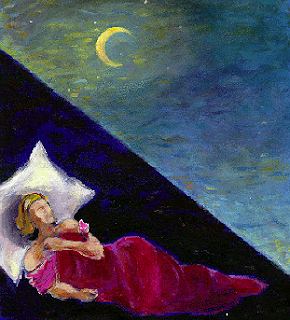
Thoughts: To sleep or not to sleep?
Food and sleep. What you eat effects how you sleep and your quality of sleep effects the foods your body craves.
How much sleep do you really need? It is universally known that we need 8 hours sleep a day. But why? And who says?
Only common people need eight hours of sleep, and those people that meditate or work to be unplugged from the illusion and have very little thoughts, require little sleep.
People that have busy constant chit chattering minds require more sleep for the mind to rest. I know that when I allow my mind to be busy and activated, or think thoughts on a negative frequency I experience tiredness and need more sleep, and 8 hours becomes not enough.
When the mind had no wasted thoughts, and therefore no energy exertion, the body requires less rest.
It is also the same for food. Have you noticed that when you are happy and life is flowing you are not craving sugars & fats? Or you aren't making food your top priority.
Three hours to four hours of deep sleep is all the brain & body need to rest. Ask any sleep scientists and they can verify this fact. Out of eight hours of sleep over 70% are used to reshuffle ones daily thoughts and experiences and also dreams; the actually rest time for the brain is about two to three hours a night.
Don't forget human capacity is greater than most of you think.
How much sleep you require depends on you. While you may be at your absolute best sleeping seven hours a night, someone else may clearly need nine hours to have a happy, productive life.
Robin Lloyd says many Americans are sleep-deprived zombies, and a quarter of us now use some form of sleeping pill or aid at night.
Thanks to the marketing of less addictive drugs directly to consumers, sleeping pills have become a hot commodity, especially in the past five years. People worldwide spent $2 billion on the most popular sleeping pill, Ambien (zolpidem), in 2004, according to the BioMarket, a biotech research company. Scaring people about sleep increases the sales of sleeping pills.
Earlier this month, it was reported that some Ambien users are susceptible to amnesia and walking in their sleep. Some even ate in the middle of the night without realizing it.
Global sales for all sleeping pills, called hypnotics, will top $5 billion in the next several years. Still, more sleep is no guarantee for overall health, and more sleeping pills might not bring on either.
A six-year study Kripke headed up of more than a million adults ages 30 to 102 showed that people who get only 6 to 7 hours a night have a lower death rate than those who get 8 hours of sleep. The risk from taking sleeping pills 30 times or more a month was not much less than the risk of smoking a pack of cigarettes a day, he says.
NaturalNews says getting enough sleep is absolutely vital to preserving the health of the body. Considering how much stress is put upon the body on a daily basis, it is no miracle that sleep is one of the only ways for the body to recuperate and repair. What is little known about sleep, however, is the appropriate amount of hours that one should be sleeping. Sleeping for seven hours has been found to be the "magic number" for sleep, warding off heart disease and thousands of other health conditions.
Natural Sleep Alternatives
The most common herb to treat sleeplessness is valerian, whose Latin name is Valeriana. It was even used in ancient Greece to calm restlessness and nervousness. Valerian is a twig, and is easily found in tea or raw form. A simple glass of valerian tea before bedtime can help induce sleep.
Peppermint is another calming nerve herb that is frequently mixed with valerian for flavor. It is a digestive herb, as well as calming to the nervous system.
Another digestive herb is Chamomile. It is also sleep inducing and readily available in tea form.
Passionflower or Passiflora tea can aid with sleeplessness, but may be more difficult to locate.
In addition to teas, herbal compresses can be placed over the face, or under the pillow.
Lavender is frequently used in this manner. Place lavender flowers into a small cotton bag and place under your pillow to induce natural sleep, and dreams.
Lemon balm is another herb known to calm the nervous system and induce sleep.
Meditation or prayer and other quieting activities before bed can also relax the body into sleep.
A circadian rhythm is the 24-hour cycle of biochemical processes in living entities. When the circadian rhythm of a human is thrown off, it may lead to conditions such as diabetes. Staying up past 2 am will throw off the body`s circadian rhythm and will result in poor sleep quality. Artificial light also acts in disrupting the body`s natural circadian rhythm. Sunlight restarts the body`s circadian rhythm, but the body cannot fully differentiate between artificial and organic light sources. This means that artificial light in the middle of the night can throw off the body`s circadian rhythm, in addition to ceasing melatonin (N-acetyl-5-methoxytryptamine) production.
This blog is thanks to Rowena McGregor!
Source:
Natural News
Article Sleep Deprivation: The Great American Myth
Quotes:
My daily activities are not unusual,
I'm just naturally in harmony with them.
Grasping nothing, discarding nothing...
Supernatural power and marvelous activity -
Drawing water and carrying firewood - Layman Pang-yun (740-808)
What I Ate Today:
Meal 1: A cucumber, green apple and ginger juice.

Meal 2: Hazelnuts.
Meal 3: Raw Pumpkin Pie! Ingredients: Pecans, dates, walnuts, pumpkin, cinnamon, ginger, nutmeg, vanilla & coconut oil!

Meal 4: An apple.
Meal 5: Honey Rosemary Chicken with Baby Spinach! Created with Lime, Free Range Organic Chicken, Garlic, Fresh or dried rosemary, Honey, Olive Oil, sprouts & spinach.

Recipe: All recipes will be published in The Earth Diet book soon to be released. Also there are free recipes available on The Earth Diet website www.TheEarthDiet.Org
Exercise: Walking :)
23 days to go!!!












Hi Liana,
ReplyDeleteIt's Rowena here - thanks for this, I know I'm not the only one who has lain awake for hours worrying about how I'm going to get enough sleep!
I've found that stretching before sleep helps a lot, maybe it calms my mind.
Can't wait to see the Earth diet book!